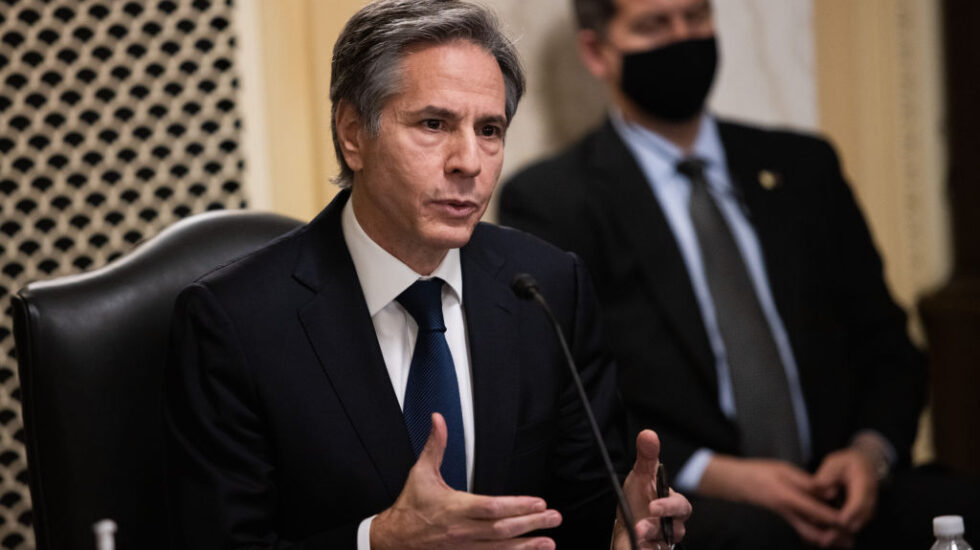Secretary of State Antony Blinken warned his staff at the US Embassy in Kyiv on Wednesday that Russia has plans to further increase its military presence on its border with Ukraine.
Those additional forces would allow Russian President Vladimir Putin to take “further aggressive action” on “very short notice.”
Blinken’s revelation comes as Russia moves troops and weaponry to Belarus, which could be a northern launching point for an attack against Ukraine.
But in a separate meeting on Wednesday with Ukrainian President Volodymyr Zelenskyy, Blinken said western nations are united in opposing “relentless” Russian aggression.
“Our strength depends on preserving our unity and that includes unity within Ukraine,” he said to Zelenskyy. “I think one of Moscow’s long-standing goals has been to try to sow divisions between and within our countries and quite simply, we cannot and will not let them do that.”
“I strongly, strongly hope that we can keep this on a diplomatic and peaceful path, but ultimately, that’s going to be President Putin’s decision,” he added.
The U.S. signaled its support of Ukraine by confirming an additional $200 million in defensive military aid.
Zelenskyy thanked Blinken for the cash infusion, saying “If we want dramatically fast steps in modernizing the military, we need help especially in these tough times.”
“Your visit is very important,” Zelenskyy continued. “It underlines once again your powerful support of our independence and sovereignty.”
The Associated Press provides context:
After his meetings with Zelenskyy and other senior Ukrainian officials, Blinken plans a short trip to Berlin for talks with German and other European allies on Thursday. He is scheduled to see his Russian counterpart, Sergey Lavrov, in Geneva on Friday. That meeting is aimed at testing Russia’s willingness to resolve the crisis diplomatically, officials said.
“The Lavrov-Blinken meet is probably the last stop before the train wreck. But hopes are dim, the positions are incompatible,” said Vladimir Frolov, a former Russian diplomat who is now a foreign policy analyst, to Reuters.
The outlet adds:
Russia says it feels menaced by Kyiv’s growing ties with the West and wants to impose “red lines” to prevent Ukraine from ever joining NATO and to get the alliance to pull back troops and weapons from eastern Europe. Washington says these demands are “non-starters”.
The Washington Post expands on the U.S. position:
The Biden administration [called] NATO’s “open door” policy sacrosanct despite widespread doubts that Ukraine will ever meet the military alliance’s criteria for membership.
U.S. officials are now left guessing if their decision to reject what Russia describes as its core demands will precede what some military analysts say could be the largest ground war in Europe in decades. Despite Washington’s vast spying apparatus, bolstered by satellites and surveillance planes, Russian President Vladimir Putin’s appetite for an invasion remains unknown.



